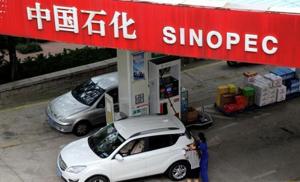Sinopec to boost fine chemicals investment at Maoming refining hub
BEIJING (Reuters) -- Sinopec Corp plans to boost investment in fine chemicals at its Maoming-Zhanjiang refining base in southern China alongside partners like Germany's BASF, a senior executive said in an interview on Thursday.
The investment would be part of the $29 billion the state major plans to spend upgrading its refining and petrochemical hubs by 2020, and highlights industry efforts to move up the value chain in the face of dwindling diesel demand and a refining capacity glut in the world's second-largest oil user.
Sinopec, China's largest refiner and petrochemicals producer, is taking the lead in the push for low-volume but high-value products that are used in the pharmaceuticals, agrichemical and aviation industries.
"We are going to cooperate with BASF in more downstream fine chemical products because they have lots of advanced technology in those areas," said Yu Xizhi, general manager of Sinopec Maoming, on the sidelines of parliament's annual meeting.
Yu said Sinopec is far behind the German chemicals giant in terms of diversification of downstream chemical products.
"I visited BASF headquarter, where it has 600,000 t of ethylene capacity and 300 units of processing equipment. In Maoming, we have 1.1 MMt of ethylene capacity but only 20 units for further processing."
Sinopec said last week it would invest $29 billion to upgrade its four refining bases between 2016 and 2020 to produce high-quality fuels as China embraces more stringent fuel standards and expands petrochemicals investment.
"We are seeing a clear trend that refiners are diversifying their products to include fine chemicals. This shift helps them to better deal with oversupply in traditional fuel markets as the glut persists," said Seng Yick Tee, senior director at Beijing-based consultancy SIA Energy.
Sinopec is better positioned than domestic rival PetroChina in chemical markets because it has more facilities and better geographic locations, Tee said.
Sinopec's refining sites to be upgraded are in the cities of Shanghai, Nanjing and Zhenhai on the east coast, and Maoming-Zhanjiang in southern Guangdong province.
Under the Maoming-Zhanjiang base that Yu heads up, the 400,000-bpd Maoming refinery will focus on traditional fuel and fine chemicals, while the Zhanjiang greenfield project will produce clean fuels and have a heavier focus on fine chemicals, Yu said.
"Headquarters sets no limit on funding the fine chemicals projects, so long as we can convince them it's the right one," he said.
Chinese refiners have had to look for new areas of business amid a moderating economy and excess refining capacity the past few years, with domestic fuel demand growth easing.
The Maoming plant posted a record annual profit of $1.3 billion before income tax in 2016, due to good refining margins on near-decade low oil prices and a boom in chemicals prices, Yu said.
Reporting by Chen Aizhu and Meng Meng; Writing by Josephine Mason; Editing by Tom Hogue







Comments